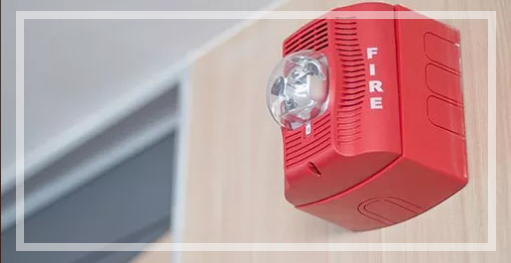Commercial fire alarm systems are not only to be put in place because it is a requirement by the state but more crucial as they are the essence of fire safety. Fire detection systems like a fire alarm are the first line of defense for the occupants of a building in the event of a fire. And not just for a commercial property, fire alarms are compact but impactful, nonetheless, for residential and industrial facilities just as much. Hence, it becomes imperative to understand the components that make up an effective fire alarm system which include the following:

1. Fire alarm initiating devices: Every automated system requires a trigger point that puts everything in motion. This is the purpose of a fire alarm initiating device, to activate the system when a fire occurs. There are mainly two types of alarm initiators:
a. Manual – this device is tangible, i.e., manual pull stations, break glass stations, or button-activated fire alarm systems.
b. Automatic – these devices are triggered automatically by design as they detect any traces of smoke. Hence, they are extremely sensitive and can sense high levels of heat, flame, and smoke as per the set measures.
2. Fire notification devices: this element is responsible for notifying the occupants of a building about the simmering danger when fire or smoke is detected. These devices include:
a. Bells;
b. Horns;
c. Strobes;
d. Chimes, etc.
3. Fire alarm control panel: the control panel is essentially the lifeline of fire alarm services, allowing for an efficient fire detection system. Also referred to as the brains of the system, the control panel monitors and manages the initiation devices. Every detection is displayed on the control panel to allow the operator to see when the device was triggered and control it manually.
4. Primary and Backup Power Supply: while the former is the fuel for your fire alarm system, the latter is the life support system needed in times of emergencies. The primary power supply is allotted by the power company and should typically be 120- or 240-volt AC power sources, whereas the backup can be as low as 6- or 12-volt batteries to keep the systems functional.
A commercial fire alarm system is as good as the maintenance and servicing offered to it. Hence, it is imperative for the safety of the people in a building as much as it is for the property that commercial fire alarm inspections are conducted periodically, without fail. So, call your fire safety service provider in New York and get your systems inspected for function!